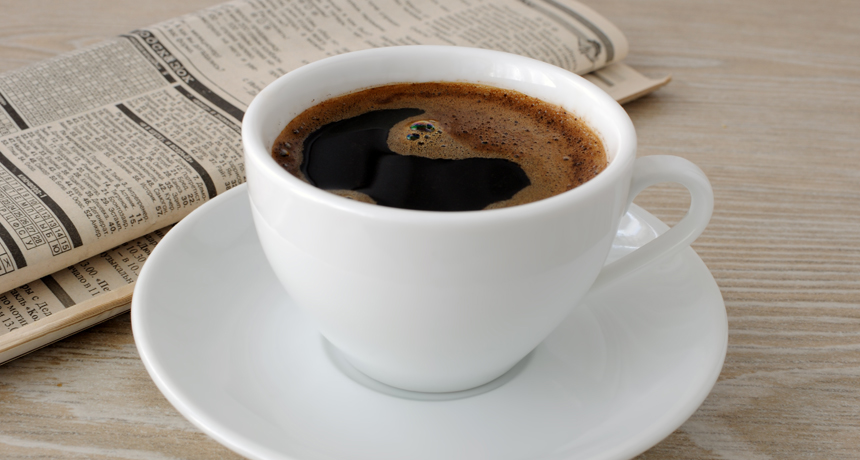Caffeine may improve memory
Taking the stimulant after learning boosted recall

BRAIN BOOST Having a cup of coffee may help people remember what they just learned.
apolonia/shutterstock
Taking the stimulant after learning boosted recall

BRAIN BOOST Having a cup of coffee may help people remember what they just learned.
apolonia/shutterstock